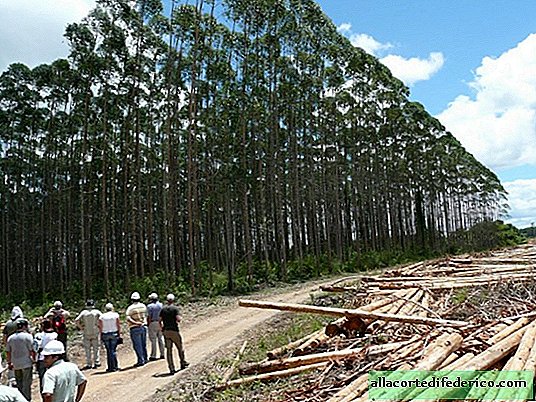Transgenic eucalyptus: why genetics created this fast-growing monster
If today few people can be surprised with genetically modified corn or soy, then not many have heard of trees improved by geneticists. Meanwhile, plantations of eucalyptus trees, which were created as a result of laboratory experiments, already occupy vast areas in the United States.

Eucalyptus plants grow in regions with a warm tropical and subtropical climate. But they grow not only in the wild, but are one of the most common trees grown by man. Residents of the tropics cut down and burn their forests in order to plant eucalyptus-free space. Such a picture can often be seen in Indonesia, Malaysia, and the Caribbean islands. Even in Spain, relict natural forests are cut down and eucalyptus trees are planted in their place.

This is an extremely unpretentious culture. Eucalyptus trees are not demanding on precipitation and soil quality and grow very quickly. Perhaps it was accelerated growth that caused the incredible popularity of this tree among industrialists. In the first year of life, eucalyptus grows to 2 meters, at the age of 3 it is already an 8-meter tree, and after only 10 years, its height will reach 25-30 meters.

Why is this whole colossal volume of eucalyptus wood used? For the production of furniture and building materials or for the collection of fruits and leaves? No, the world needs millions of eucalyptus for another - to make paper. Indeed, more than 1/3 of all world paper is produced from eucalyptus wood. In general, almost any wood, both hardwood and softwood, is suitable for its production, but eucalyptus paper is of high quality and is in high demand in the world market. Ease of cultivation and high quality of the final product determined the choice of most companies in favor of eucalyptus.

The United States also decided to join the cultivation of eucalyptus, which is so economically profitable culture. But the climate of most of the country is not as favorable for eucalyptus trees as their native tropics. And here genetics came to the aid of wood producers who managed to get a cold-resistant look. In addition, transgenic eucalyptus has a higher growth energy and reaches industrial conditions after 7-8 years.

The plantation of experimental eucalyptus trees has caused heated discussion in the United States, both among environmental scientists and in society. Researchers believe that plantations of genetically modified eucalyptus trees will have a negative impact on surrounding ecosystems. Seeds of these plants can be carried by the wind over long distances, and the fact that transgenic plants spread in a remote area can be learned too late.

















